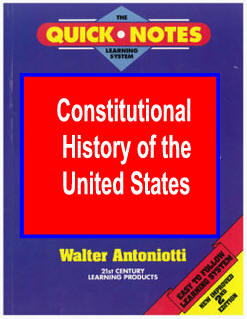"A consortium of students and professors based at Yale Law School founded the Federalist Society in 1982" to helped recruit and provide career support for bright legal minds. It provided social-professional networks to connect law students with influential senior mentors. Reagan's Attorney General Edwin Meese helped with the administration’s selection of 400 federal judges using ideological profiling that made a conservative criteria important. Meese succeeded in the selection process and convinced many they were fulfilling founding father intentions. The Institute for Justice, the Center for Individual Rights and rightward philanthropists/organizations Joseph Coors, Charles, David Koch, and the Olin Foundation contributed much money to law schools like George Mason University. Schools with supportive of conservative professor whose research and ideas would educate students.
How Conservatives Won the Battle Over Government
Prelude: Conservative President L. Johnson accomplished J. Kennedy Liberal Agenda changed the game.
Uniting Business Interest
1971 Powell Manifesto from soon to be Supreme Court Justice Louis Powell
"Though Powell’s memo was not the sole influence, the Chamber and corporate activists took his advice to heart and began building a powerful array of institutions designed to shift public attitudes and beliefs over the course of years and decades. The memo influenced or inspired the creation of the Heritage Foundation (1972)... Cato Institute(1974) ...." There success was enhanced by the Reagan Administration’s “hands-off business” philosophy.
1972 Business Round Table created to encourages business political activity.
The Chicago Boys represented a similar consortium fostering neoliberal (conservative in US) economics.
Justice Sandra Day O’Connor preceded Justice
Anthony
Kennedy as the
“swing vote” votes of the Supreme Court.
Some feel a swing-vote brings greater responsibility
because
their existence come into being in close and
therefore
consequential decisions.
This generation has seen Justices O’Connor and Kennedy cast the deciding vote making said decision possible and in doing so kept alive the Court’s non-partisan legitimacy. For two generations the court has made decisions that changed the original written document, its amendments, all unwritten agreements and court decisions that determine how those documents were to be interpreted.
The following controversial decisions that needed a swing vote exemplify our "managed constitution."



